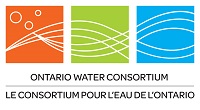On May 16, SOWC and McMaster University in Hamilton, Ontario hosted the SOWC Sensors event and networking session. The morning event highlighted the unique capacity of the Sensors Node of SOWC, and provided engagement opportunities between researchers and local companies.

SOWC Operations Manager Brenda Lucas provides attendees with an introduction and overview of the SOWC platform
The Sensor node, led by McMaster University, enables the development of automated, wireless and distributed sensing of pathogens, chemicals and elemental contamination that may be present in water. The node provides specific sensor technology and infrastructure to design, prototype and validate sensors for the specific needs of SOWC users.

Dr. Vassili Karanassios, Professor of Analytical Chemistry at the University of Waterloo discusses his work and the specific capacity of the Sensors Node at the University of Waterloo. His lab specializes in developing and testing miniaturized, micro- and nano- instruments
A primary aspect of SOWC events is to highlight collaborative opportunities between researchers and private industry. Specific collaboration within the Sensors node includes demonstration, testing and research related to sensor application, such as the detection of biological, chemical and elemental species drinking water. As sensor development cannot process without the input of potential users across the water disciplines, various forms of collaborations are available between Sensors and all other nodes.

Dr. Jamal Deen, Sensors Node Lead and Senior Canada Research Chair in Information Technology at McMaster University summarizes capacity and research expertise for collaborations within the Sensors Node
The Sensors node will primarily be located at McMaster University’s Micro and Nano Systems Laboratory and will include equipment that will augment the infrastructure already in place at McMaster for the development of environmental sensing technologies. Additional capacity is located at University of Waterloo.

